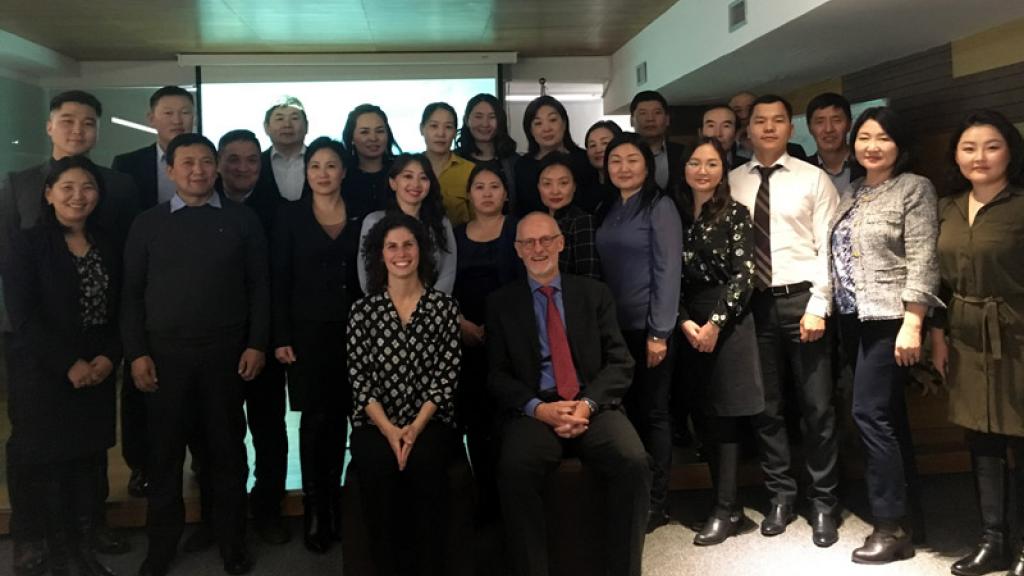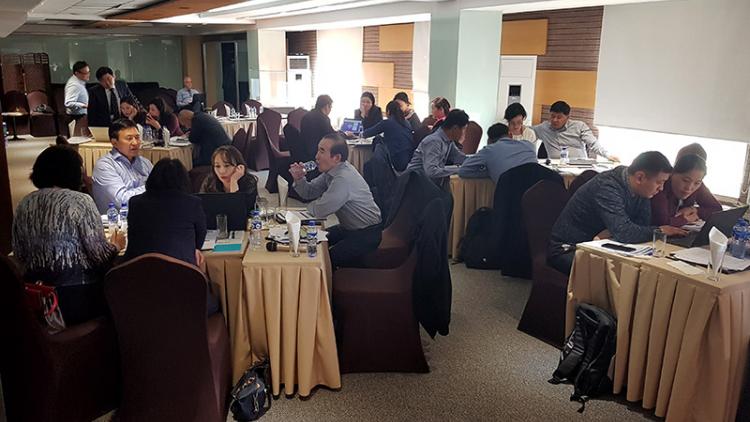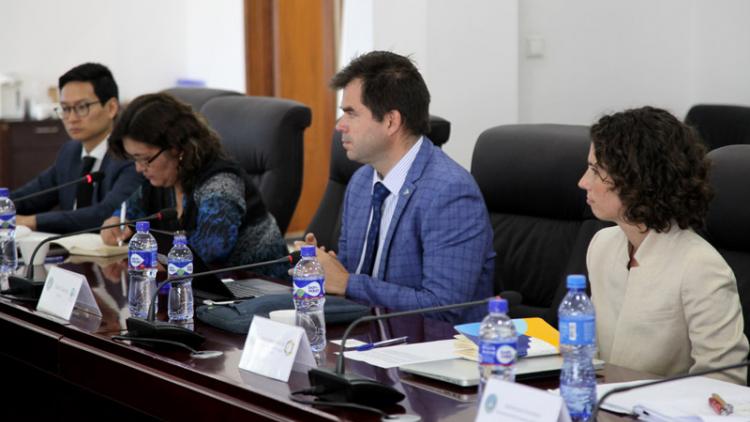Getting Their Fair Share: Capacity building on mining taxation pays dividends for Mongolia
Since Mongolia transitioned to a market-based economy in the early 1990s, foreign investment has flooded in to develop mining projects in the country. But despite this influx of capital, the government saw it was not getting its fair share of revenues from the sector. As a member of the IISD-hosted Intergovernmental Forum on Mining, Minerals, Metals, and Sustainable Development (IGF), Mongolia was able to get the support it needed to eventually collect substantial unpaid taxes and become better equipped to safeguard the public’s financial interests going forward.
Mining drives foreign investment, trade, and growth in Mongolia, with recent estimates indicating that the sector is responsible for an estimated 19% of the country’s gross domestic product and 94% of its export value. As the sector grew, however, it became clear to the government that multinational mining companies were taking advantage of the government’s relatively limited human resources and experience to avoid paying taxes, thus depriving Mongolia of crucial revenues for public services.
As part of its efforts to ensure that its burgeoning mining sector fully contributes to the country, Mongolia is part of a voluntary forum known as the Intergovernmental Forum on Mining (IGF), which has 79 governments as members. Upon realizing that these crucial mining revenues were being lost, Mongolia asked the IGF secretariat for technical assistance on mining taxation in 2019, given that optimizing the financial benefits from mining is one of that forum’s core activities.
The IGF secretariat team has developed specialized expertise to help countries address the unique challenges related to tax base erosion and profit shifting (BEPS) in the mining sector. This situation refers to instances where multinational companies use some of the gaps in both domestic and international tax rules to avoid paying tax that is otherwise owed. The BEPS in Mining program, a partnership between the IGF and the Organisation for Economic Co-operation and Development (OECD) and delivered alongside Tax Inspectors Without Borders (TIWB), is a unique initiative that provides mining and international tax expertise along with long-term capacity-building support.
The Mongolian Context
As foreign mining companies set up in Mongolia’s newly opened economy, the country’s tax administration was facing sophisticated tax avoidance practices for the first time. Transfer pricing is one such scheme where subsidiaries of a parent company manipulate internal transaction prices to lower their tax payable. And mining operators produce commodities with highly variable and fluctuating prices and costs. This can make assessing and collecting the correct amount of tax especially difficult.
The Mongolian Tax Authority had three top priorities:
- Building capacity to audit transfer pricing, the process by which multinationals set the price of intra-group transactions.
- Increasing capital gains tax revenues by valuing mining licences more precisely.
- Improving corporate income tax collection by preventing companies from unduly offsetting mining profits with mineral exploration or early-stage project development costs.
Motivated to improve its transfer pricing audit practice, Mongolia’s tax administration moved quickly to make key officials available for training. By October 2019, it had launched its first transfer pricing division. Remarking on one such training, the head of the new division, Tugsjargal Sereenendorj, said, “The most useful topic for me was pricing of different types of coal using the world market price database. In Mongolia, underpricing of coal in transactions both with related parties and independent parties is a common issue.”
By the end of 2020, Mongolia issued its first transfer pricing tax assessment as part of a comprehensive audit of a large multinational mining company. Through this assessment, the government collected USD 228 million in tax revenue and denied USD 1.5 billion in carried-forward losses that would have significantly reduced future tax revenue. It is notable that the company promptly paid the tax assessment in full and that the sum collected represented about 1.7% of the country’s gross domestic product in 2020.
“The transfer pricing audit conducted with this essential technical assistance … is a major step forward for the Mongolian Tax Administration,” said Zayabal Batjargal, a commissioner with the administration. “The resulting tax assessment is a testament to the capabilities of the Mongolian tax officials as well as the combined international effort to tackle global tax avoidance.”
Mongolia has also made important legal and regulatory changes that are already yielding additional mining revenue.
In 2019, following capacity building and legal drafting support from the IGF and the OECD, the tax authority introduced new regulations on the valuation of mining and exploration licences for capital gains tax purposes (Decree 302). The new rules mean companies can no longer choose the valuation method that requires them to pay the least amount of tax. Since the regulation was introduced, the tax authority has assessed approximately USD 8.7 million in taxes on the transfer of 246 licences.
Mongolia also introduced ring-fencing rules for the first time in 2020. Such rules prevent mining companies from consolidating income and costs across multiple projects to delay paying corporate income tax, sometimes for years. The IGF and the OECD provided technical input into drafting the new rules, as well as capacity building on implementation. Officials have confirmed the ring-fencing measures are bringing in additional government revenue from mining licence holders while also making the timing and amount of tax due easier to predict.
The IGF, OECD, and TIWB continue to work with the Government of Mongolia to strengthen revenue collection from mining. For more information on this program, see the report Tackling Multinational Tax Avoidance in Mongolia: From Building Modern Legal Frameworks and Mining Industry Expertise to a Major Audit Outcome published by the OECD, TIWB, and IGF and available in English, French, Spanish, and Mongolian.
This story was originally published as part of the IGF Impact Stories series documenting how the IGF’s work has helped its member countries improve mining governance. Read more IGF Impact Stories.
You might also be interested in
Women and the Mine of the Future
Uncovering the gender-disaggregated employment profile for large-scale mining, focusing on women and their occupations in 12 countries.
IGF Case Study: Mine Water Management
Following an overview of important components of watershed management, the two case studies show how each jurisdiction has evolved and is making improvements.
Leveraging Digital Infrastructure for Mining Community Resilience
This report explores the socio-economic impacts and potential of new technologies in the mining sector.
IGF Case Study: Decarbonization of the Mining Sector
Case studies from Chile, Indonesia, and South Africa that delve into the role of the mining sector in efforts to reduce greenhouse gas (GHG) emissions.



